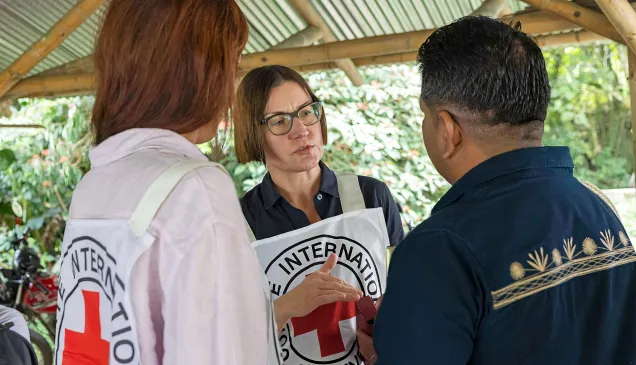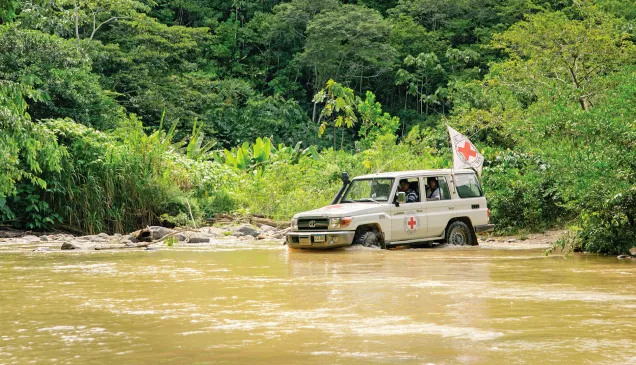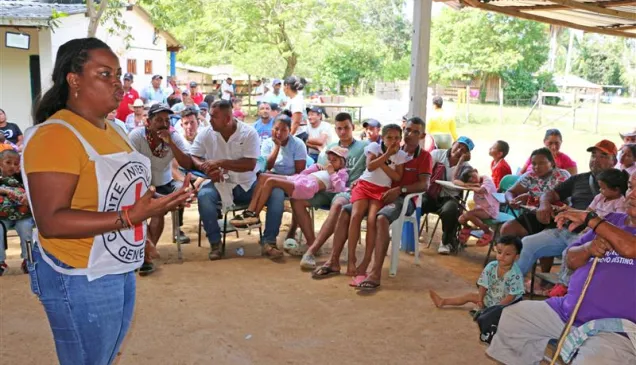Disappearance: the pain of not knowing - Colombia
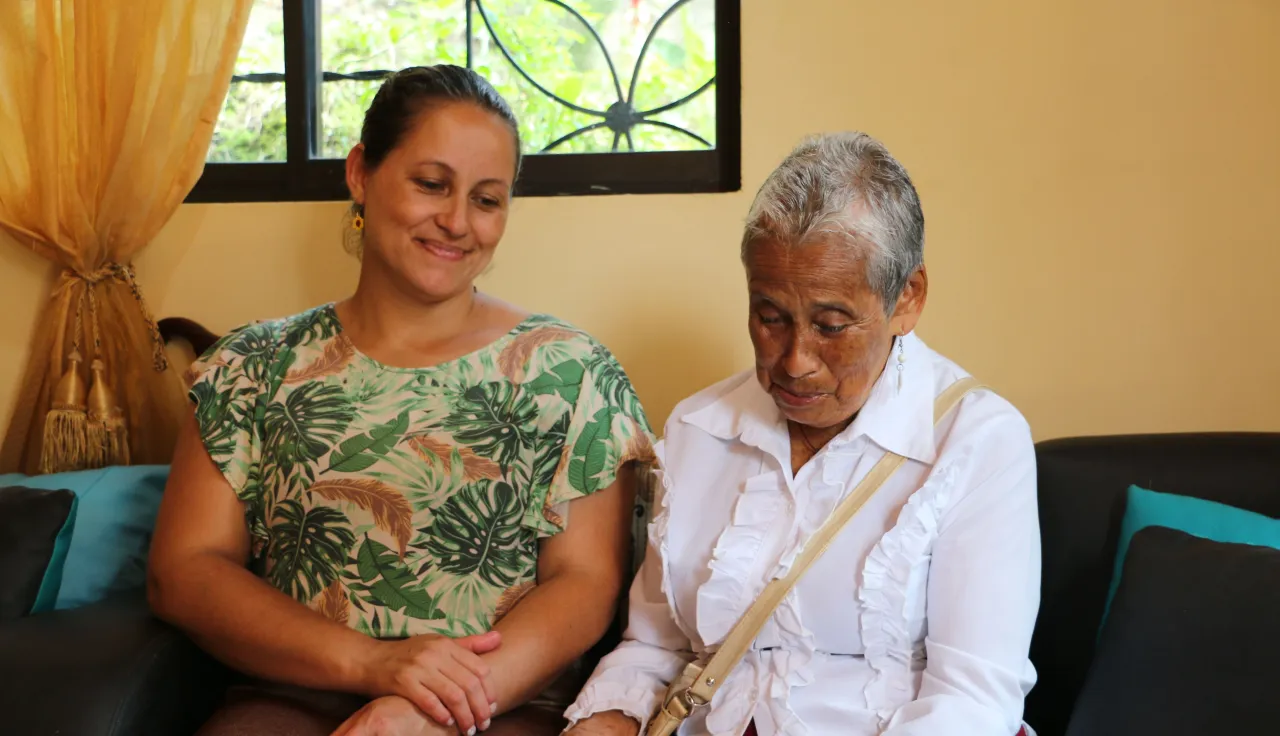
In Colombia, people continue to disappear. It is a never-ending tragedy. Thousands of families have searched tirelessly for their loved ones for years, even decades. They face countless obstacles, difficulties and, in many cases, stigmatization for demanding answers about what happened to their relatives and their whereabouts.
Meanwhile, more people are disappearing. In 2024, we documented 252 new disappearances related to armed conflicts and violence, an increase of 13 per cent compared with the previous year. These 252 cases were spread over 19 departments, but just seven departments accounted for 85 per cent: Arauca, Cauca, Valle del Cauca, Nariño, Norte de Santander, Bolívar and Chocó.
The people were reported missing for several reasons. Some were victims of disappearance, others were deprived of their liberty or recruited, and given no opportunity to communicate with their loved ones. In other cases, they died – victims of homicide or violent confrontations – and their relatives were not informed about what had happened or their whereabouts.
Armed groups continue to use disappearance as a strategy to terrorize civilians. However, in some cases of disappearance it is the weapon bearers who are responsible. For example, when a person is killed in an armed conflict, the weapon bearers, state or not state, may mismanage the body or information of the deceased. In 2024, with the increase in hostilities and territorial disputes, the number of dead and wounded rose, and with it the risk of people disappearing, in this context of mismanagement of bodies.
Under humanitarian law, parties to armed conflicts are obliged to prevent disappearance, both intentional and unintentional. If it does occur, they must make all possible efforts to clarify what has happened to, and the whereabouts of, missing people. Therefore, armed actors must take all necessary measures to ensure that the bodies of those who have died in the conflict are taken to state facilities, so they can be identified and returned to their families. No one should disappear, and no family should have to bear such uncertainty.
In 2024, 82 per cent of the people who disappeared were civilians. The remaining 18 per cent were members of the state security forces or armed groups. Most of the people who go missing are men. It tends to be their mothers, wives, partners, daughters and sisters who search for them. In the period between the entry into force of the 2016 Peace Agreement and December 2024, we documented 1,929 disappearances. Although high, this figure does not reflect the full extent of the problem; the true number of disappearances is certainly much higher.
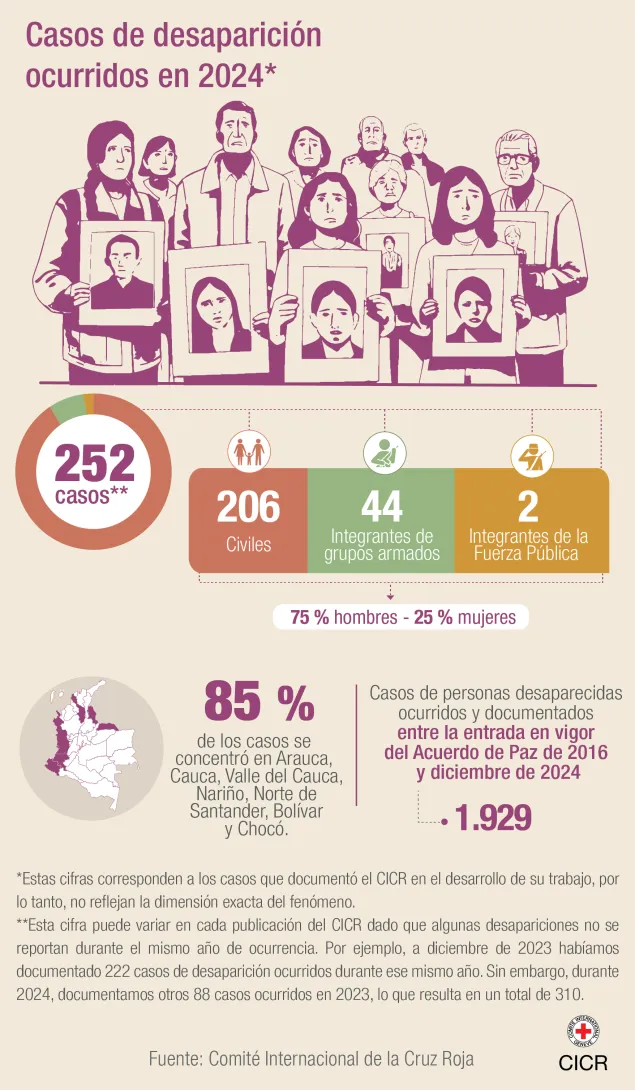
Given that people continue to disappear, it is essential that the Colombian state establish an exclusively humanitarian, extrajudicial system to search for people who have gone missing since the 2016 Peace Agreement entered into force.
It is also crucial that the state allocate the resources needed to consolidate and implement the public policy governing the national search system, so that the families of missing people get concrete answers to their questions. In addition, it is important that the state strengthen the response capacity of the institutions that make up the medicolegal system, so it can provide the forensic services needed in relation to victims of armed conflicts.
This includes searching for, recovering, analysing, identifying and returning to their families the bodies of the dead. The work of identifying the bodies is just as important as the work of recovering them. This is because, once a missing person is found, it is essential they can be identified and returned to their family with dignity. The search does not end when the body is found, but when the person's identity is restored.

